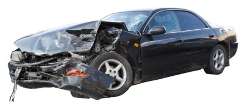Call Us For A Car Today!
502-498-5573
For the sake of clarity, we’re not discussing the value of new cars, or classic collectibles. We’ll donate our time to the used vehicle market.
So what is your car worth? This is a question on a lot of peoples minds. So how do you determine the value of a car? Actually it all comes down to the condition of the car, and the location and and respective perspectives of the buyer and the seller. Then there’s the factor that a lot of buyers (dealers) are soon to be sellers and this has to be factored into the equation. So lets start with the “condition” factor of the equation.
“Condition” And How it Effects Car Values
.
The condition of a car is the main determining factor in placing a value on it. If the car is wrecked, dirty, or it’s obvious that the maintenance hasn’t been performed in a satisfactory manner, the car will be worth considerably less. Typically Condition is rated as POOR – FAIR – GOOD – EXCELLENT
So Who’s Doing the Buying and Who’s Doing the Selling?
When talking “buying” or ‘selling” we can’t leave out trade ins. Trading a vehicle in at a dealer is a form of selling it and will need to be addressed. Primarily there are 4 types of Value that can be assigned to any given vehicle. Please visit the NADA GUIDE for actual used car prices.
1) Dealer Wholesale Value: This is the price that dealers will typically pay for a vehicle at a large auction house, or when purchasing stock from another dealer.
2) Trade in Value: This is the price that a dealer will allow a private party that is trading there currently owned vehicle on a vehicle purchase.
3) Retail Value: Retail Value is the price that you see when shopping at dealerships for cars.
4) Private Party Value: Last but not least is the private party value. This is the price that one individual pays another individual when purchasing from a classified ad or other venue.
Call Us For A Car Today!
502-498-5573